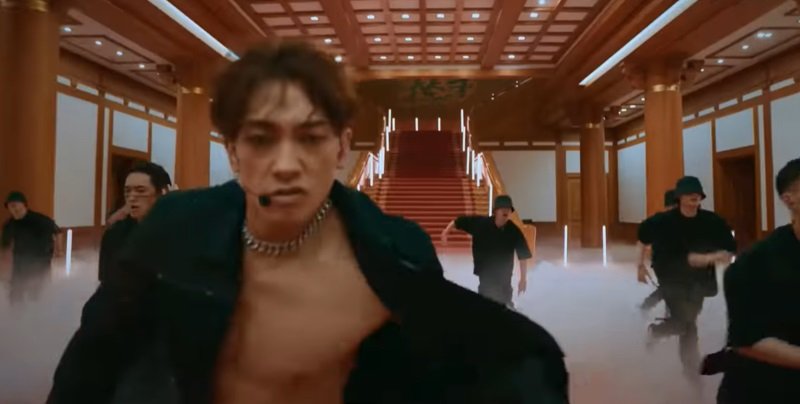In the fourth singer, Rain of ‘Take 1’, released on Netflix on the 14th, the process of making performance at the Blue House is naturally edited and flowed. I thought it might be pretty controversial. But, unsurprisingly, four months have occurred.
On the 21st, KBS, citing data submitted by the Cultural Heritage Administration for a state audit by Lee Byung-hoon, a member of the National Assembly Culture, Sports and Tourism Committee, and the Democratic Party of Korea on the 21st, added a separate supplement to the Blue House viewing regulations stating that “filming inside the Blue House is not permitted if it contains commercial activities.” It was reported with the intent that the enactment of “there is no choice but to be seen as a way to watch (singer Rain’s) filming.”
The Blue House viewing regulations were enacted on June 7 and came into effect on the 12th of the same month, but Rain’s performance was filmed on the 17th of the same month. It was impossible to shoot commercial content if the original regulations were followed. Still, the report’s gist was that the performance was completed as the Cultural Heritage Administration stated in the supplementary, ‘Relevant regulations will apply to applications after June 20’. Representative Lee Byung-hoon’s office and others have been discussing the performance since the President’s transition committee, so they questioned whether the Cultural Heritage Administration was trying to give preferential treatment.
In addition, it is pointed out that it is a violation of regulations for Rain to go into the presidential office under the guidance of the production team’s drone team and the person in charge of the task force in May to complete a preliminary survey and publicize it.
However, the Cultural Heritage Administration said, “According to the regulations on visiting the Blue House, applications must be submitted seven days before the filming date (Article 10) and 20 days before the date of use (Article 11). Therefore, it is a separate appendix on the deferral so that the 12th to 7th of the month will be applied from June 20, and Article 11 will be applied from July 3 on the 20th.” He further emphasized, “I make it clear that this is an extremely natural measure in principle, and it is not intended to give preferential treatment to specific applications.”
In addition, the Netflix production team allowed the filming to promote the Blue House, which is open to citizens, through an online video service (OTT) platform that is transmitted to more than 190 countries.
The entire process was thoroughly supervised, and we did our best to manage the Blue House so that filming could be completed safely without damaging the facilities or causing casualties by receiving the ‘Oath of Observance of the Blue House’s facilities,'” he explained. Furthermore, the Blue House Public Relations Promotion Team under the Cultural Heritage Administration emphasized that it will do its best to manage the safety of the grounds and strengthen the historicity and symbolism of the Blue House when filming and use of the location are permitted in the future.
Rain sang ‘Rainism’, but it was Rain himself who came up with the idea of flying a drone to the office of the Blue House to capture himself and then performing on a particular stage in the front yard of the office. He wondered if he could get permission to shoot from the production team, and then later revealed that the production team had difficulty getting permission to shoot, and he said, ‘These are great people.
There is a scene where he says, ‘I like talented people. He also emphasized several times that he made every effort to protect the facility, such as covering the carpet for performance purposes instead of the office carpet. In addition, I tried to minimize the damage by shooting at night after all the general viewing.
Meanwhile, Netflix’s ‘Take One was produced with the concept that in addition to Rain, seven musicians, including Jo Sumi, AKMU, Lim Jae-beom, Park Jung-Hyun, Yoo Hee-yeol, and Mamamoo, perform only once in their lifetime with one song.
It is hard to say that Rain’s performance was driven by personal profit. The audience was invited free of charge. Although Netflix is a paid service, it is difficult to say that it pursued commercial gain through this performance.
The Cultural Heritage Administration was only trying to promote K-pop, Korea, and the value of cultural assets of the Blue House through performances by famous musicians. I hope to find this balance well in the future.
Meanwhile, Netflix’s ‘Take One was produced with the concept that in addition to Rain, seven musicians, including Jo Sumi, AKMU, Lim Jae-beom, Park Jung-Hyun, Yoo Hee-yeol, and Mamamoo, perform only once in their lifetime with one song.











